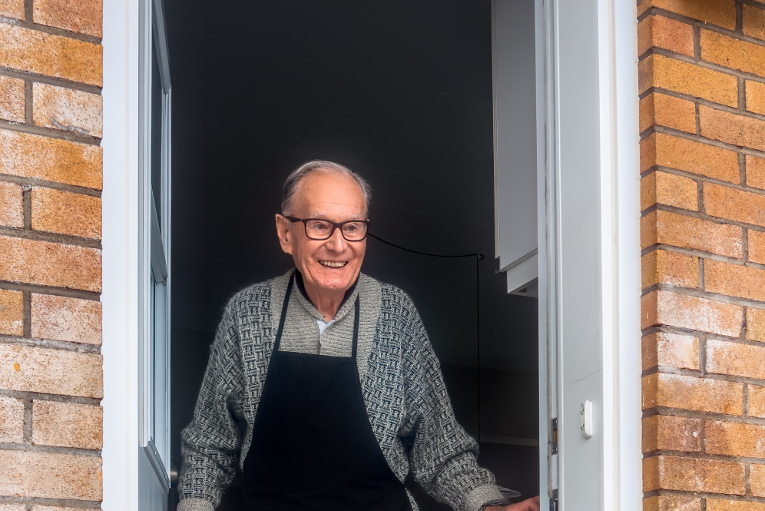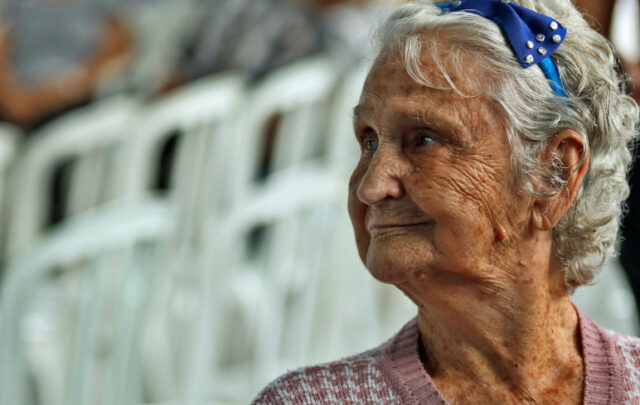A broader political economy of care can make visible the interdependence and reciprocity that are fundamental parts of our social world.
Crisis in care
Care creates an indispensable human bond; a way of expressing what is truly valuable in life. Yet today this social ethic of care is again under threat, whether by a decade of austerity, yawning inequality, or the regressive sentiments of right-wing politics. The current Covid-19 pandemic has intensified public focus on the strained relations between citizen and state, as well as the capacity of our health and social care systems to meet the needs of the population in humane, equitable and responsive ways.
In the post-war era, an ethos of care and social responsibility featured in the construction of new settlements of public welfare following the devastation of World War 2. Over more recent decades, the value of care in the public domain has been gradually unravelling. Declining quality, rising costs, and service fragmentation drive the poor outcomes of privatised and centralized management regimes in home care, residential care, and nursing homes. Decades of clumsy top-down reorganisations and withdrawal of government support have seriously compounded matters and left many people in a state of avoidable suffering. How can citizens and stakeholders respond?
Care, the State and the Market
In some ways, our current careless predicament is not surprising. Self-serving patterns in politics and culture (and in particular economics) have led to the widespread breakdown of empathy within wider societal institutions and associational life. Care also expresses the interplay between human and non-human forms of life. Alongside the erosion of our social fabric, we preside over an alarming failure of care for our natural environment and its myriad forms of life. All of which suggests that ‘care’ is something far broader, deeper and more fundamental than the public-municipal health and social care sectors that tend to dominate public commentary and policy.
Today, orthodoxy in social care is still shaped by the narrow prescriptions of mainstream economics, and the new public management practices derived from them. These models, often cloaked in arcane and inaccessible language and intricate statistical modelling, have a simple assumption at their core. That improvement and progress is primarily a matter of more ‘efficient’ resource allocation, implemented in a ‘top down’ fashion.
Yet care has characteristics that differ from those commodities assumed by conventional economics. When care – a social emotion – is treated as such, it becomes vulnerable to the dominant vision of unsustainable progress: commodity production, consumerism, accumulation, and growth. This derives from an economical-quantitative paradigm that is in tension with the subtle, complex, and long-term value of care and caring. To illustrate this point, paid care work is cast as ‘unskilled labour’: a workforce with a limited skill set, undeserving of fair pay or adequate employment rights, and work that contributes minimal ‘value’ (as currently conceived) to the economy.
This misconception and its operationalisation mean we miss the seemingly obvious: care is a relationship built upon love, shared vulnerability, emotional proximity, and responsibility. It is not a scarce commodity that must be packaged, before being ‘delivered’ as quickly and as cheaply as possible, like an Amazon order.
A second critical point – and one feminist economists have been at pains to point out – is that friends and relatives (and in particular, women) provide the majority of adult social care, on a largely unpaid basis. Yet conventional economic theory and practice devalues forms of unpaid care labour by forming and maintaining an extractive relation between what is classed as economically ‘productive’ work (paid) and what is merely ‘reproductive’ care work (unpaid).
This separation depletes the value of mainly feminised and unpaid care work, including the realm of the household and the ‘everyday’ care we provide one another through deed, affect or obligation. The invisibility of these forms of care work in economic terms – that which is invaluable yet cannot be measured – is problematic as it results in the gradual erosion of our livelihood support and social reproductive system. This ‘crisis of social reproduction’ has only intensified during Covid-19, where lack of access to childcare has played a part in the loss of employment of around half of the women made redundant during the pandemic.
Alternatives
Anthropologist David Graeber points out how many forms of work are not actually about producing something at all, but about caring, nurturing, and maintaining. Health and social care are primary examples. But Graeber finds it particularly problematic how care is penalized by a financialised global economy that gratuitously and mechanistically produces millions of low paid and under-valued jobs. Care and its outcomes are particularly vulnerable, given its’ relational and emotional – even spiritual – dimensions.
In practical terms, what we now need is a movement and a framework for care and for society that enables people to live their own definition of dignity; derives from the experience of the caring relation; and emerges through that same shared experience. Such a framework should aim to explore the structural conditions required to make such a vision reality, and how this might be realised in the contemporary economy.
The Commons offers us such a vision for change. For three decades now, the ‘rediscovery’ of the commons – shared resources co-governed by its user community – has been providing fresh hope that we can transcend the pathologies of our current gridlocked ‘market-state’ order. Refuting the damaging fictions portrayed by orthodox economics, it gives us the power to reject the dominant cultural narrative that the destructive anti-patterns of the market economy are fixed, unchangeable and universally linked to our “social reality”.
This is a deeper, broader canvas for social care. If something has become apparent in a time of pandemic, it is a focus on mutual care and emotional proximity in a time of physical distancing and social restrictions. It is the importance of re-evaluating, re-articulating and reproducing our worlds not only through the logic of contract, but through empathy, trust, reciprocity and mutual support; as well as through the mindful expression of disenfranchised modes of experience such as grief.
As friend and colleague Denis Postle reminds me, we are currently living within a potent global mix of anxiety and repressed grief. Denis explains: “For every death from Covid-19, there are numerous people deeply hurt by the loss and the tragically inadequate funerals and terminal contact, as well as the carers who lose people they have got to know well”. Both care and commons can provide a language to express this lived experience, a language free from the short-term and misleading constructs of the political pragmatist, or the structural exclusions of market society.
The commons also assert ecological, participatory co-design and co-management principles that reject centralization and commodification, reframing the human need for care as best met through distributed systems of community resilience, citizen accountability and systemic durability. Ecological design and evaluation should include the whole of human relations and reproductive labour in our participatory planning of care services. Key here, as P2P Foundation founder Michel Bauwens points out, is a participatory, multi-stakeholder process:
“…care services are funded as a public service by the state, guaranteeing universal access, but the crafting of the process is a co-production of all stakeholders, including [citizen] communities and their families. [Citizens] have a quite different vision of what they need than process oriented [services], resulting in soaring satisfaction rates… Multi-stakeholdership and the co-production of the value chain includes everyone affected by a provisioning service.”
Mutual Aid Networks, brought to the fore during the covid-19 pandemic, are an obvious example of this open form of cooperation, as are the successful multi-stakeholder social care cooperatives of Emilia-Romagna in Italy, and Quebec in Canada. Open Cooperatives are an example of commons-based co-production, since they differentiate expressions of solidarity and mutuality (owned and locally crafted by the community according to their own rules and norms) from ‘the public’ (as exclusionary, centralized, state bureaucracy). Crucially, they extend ownership beyond the traditional cooperative’s members to enfranchise all contributors, including people supported, workers, family carers, neighbours, funders, and local communities in their decision-making structures.
But more is needed. As well as experimentation in empowering and responsive organisational form, changes and innovations are required in law, policy and state forms to make the non-monetized value of care perceptible or ‘visible’. This must include political commitment: the reform of labour law and legal rights, overturning gender inequality and the marginalization of care work as paid labour.
It also means expanded human rights – more comprehensive socio-legal protection and socioeconomic rights – for those who need them. The market fundamentalist vision of rational citizen-consumers whose care needs can be best met through an ever-expanding marketplace ignores the fact that those without money power have, in reality, very little choice or control.
What is next?
What is now needed is re-connection with the commons. In a commons-orientated society in balance with societal needs and ecological realism, the state acts as partner, assuring fairness and transparency, prioritising community flourishing, and advancing the public interest subject to democratic accountability. This will require collaboration between citizens, civil society activists, trade unions, critically reflective and creative academics willing to look outside of the academy, health and social care practitioners, law and policymakers, and community leaders.
Key to the successful development of cooperative and commons-based care is the development of the ‘Partner State’ that promotes stronger co-ordination between public authorities and an empowered civil society, including:
- A patterns approach to re-designing and building social care back better, to ensure systems adaptation to diverse individual and community need.
- Mapping the Commons, from Neighbourhood Democracy to cooperative forms of economic activity, work, and life; including use of convivial forms of P2P Technology.
- Responsive care design that prioritises and includes first person, emotional response: people who speak from lived experience.
- Democratic Finance.
- Multi-stakeholder governance: a renewed focus on the co-production of human services.
- A Human-rights approach.
This is merely a conversation starter. What comes next cannot be a closed forum or utopian venture. Nor can it be a ‘one size fits all’. It must be carefully designed to fit local context; while its evolution must highlight the role and purpose of political advocacy, cooperative forms, as well as the changing role of the state and public authorities. Crucially, as Pat Conaty of the Synergia Cooperative explains, the relationship between generative community practices for change and the state must be through social dialogue and on equitable terms.
The pandemic has made visible the many positive features of the caring society and our social nature. Now we need the responsive partner state that can structurally see and support a shift in welfare governance towards Commons Transition: the critical value of carers and commoners.
Photo by Andre Ouellet on Unsplash





